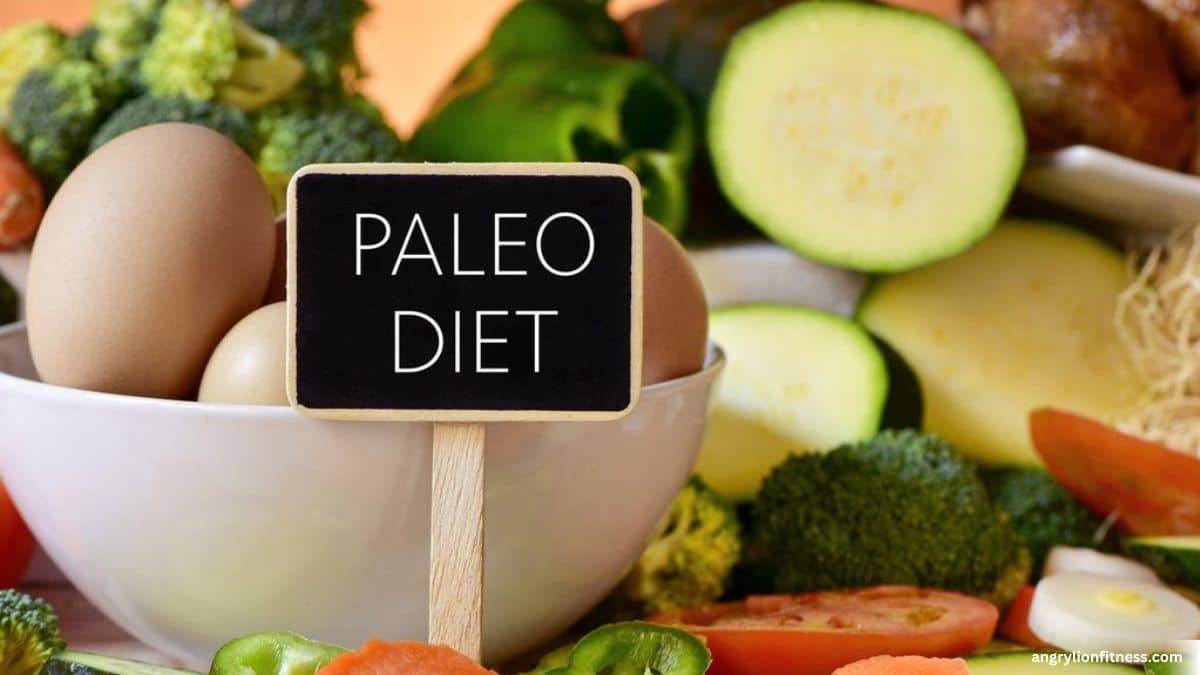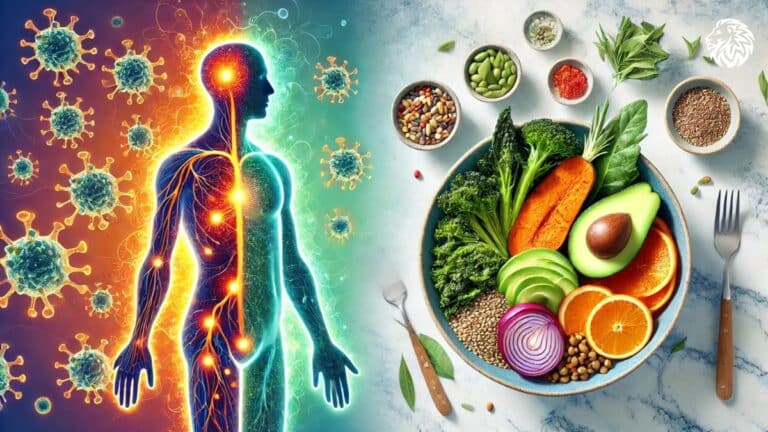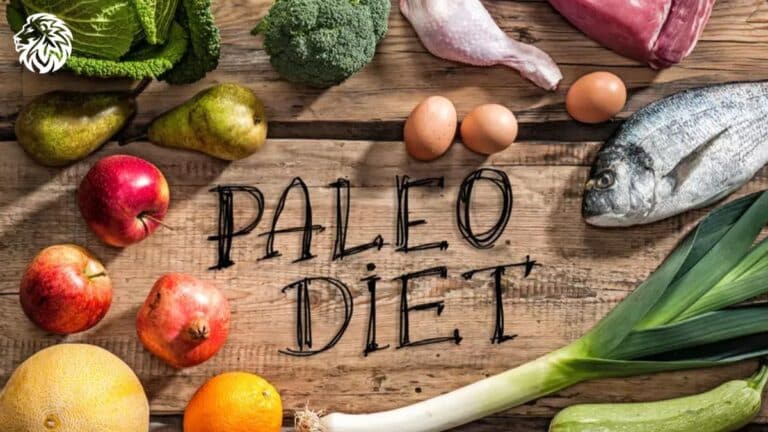Key Takeaways
- The Paleo diet is a dietary approach based on the presumed eating habits of our prehistoric ancestors.
- The diet emphasizes whole, unprocessed foods, while eliminating dairy, grains, legumes, and processed foods.
- The potential benefits of the Paleo diet include improved digestion, increased energy levels, reduced inflammation, better sleep, weight loss, and a lowered risk of chronic diseases.
- It’s important to consult with a healthcare professional before making significant dietary changes and to have realistic expectations for weight loss on the diet.
The Paleo diet, also known as the caveman diet, is a dietary approach based on the presumed eating habits of our prehistoric ancestors. This diet emphasizes whole, unprocessed foods, while eliminating dairy, grains, legumes, and processed foods. The popularity of the Paleo diet has grown in recent years, as many people seek to improve their overall health and well-being through diet and lifestyle changes. In this article, we will explore how the Paleo diet works, what benefits it offers, and how long it takes to see results.
How Does a Paleo Diet Work?
The Paleo diet is based on the idea that our bodies are designed to eat the way our ancient ancestors did. The diet focuses on consuming whole, unprocessed foods such as meat, fish, fruits, and vegetables, while eliminating foods that were not available to our ancestors, such as dairy, grains, and processed foods. The idea behind this is that our bodies have not adapted to modern food processing techniques and that consuming such foods can lead to health problems such as inflammation, obesity, and chronic diseases. Additionally, the Paleo diet promotes a healthy gut microbiome, which is believed to play a crucial role in overall health and well-being. In the following sections, we will delve deeper into the principles and science behind the Paleo diet.
What Can You Expect from A Paleo Diet?

People have said that the Paleo diet could improve health and well-being in general. Even though each person’s experience may be different, there are several possible benefits to following a Paleo diet. In this part, we’ll look at some of the benefits that Paleo diet supporters say it has.
Improved Digestion and Gut Health
On the Paleo diet, it’s important to eat whole, unprocessed foods that are high in fiber and nutrients. This can help improve digestion and promote a healthy gut microbiome. Also, the Paleo diet can reduce inflammation in the gut, which can cause a lot of digestive problems, by cutting out processed foods and refined sugars.
Higher Levels of Energy
People who support the Paleo diet say that it can give you more energy because it encourages you to eat foods that are high in nutrients. This is because the body gets the fuel it needs to work at its best, and it doesn’t have to work as hard to digest processed foods and sugars.
Reduced Inflammation
Chronic inflammation is linked to a number of health problems, such as heart disease, diabetes, and cancer. The Paleo diet is based on whole, unprocessed foods that are low in compounds that cause inflammation. The Paleo diet can also reduce inflammation in the body by cutting out processed foods and refined sugars. This can lead to better health all around.
Better Sleep
The quality and quantity of sleep can have a significant impact on overall health and well-being. The Paleo diet stresses eating whole, unprocessed foods. These foods are full of nutrients that can help you sleep well. The Paleo diet can also help people sleep better by reducing inflammation in the body.
Weight Loss
One of the best things about the Paleo diet is that it might help you lose weight. By eliminating processed foods and refined sugars, the diet naturally reduces calorie intake. Also, the diet focuses on eating whole, nutrient-dense foods. These foods can help you feel full and satisfied, which can lead to eating fewer calories overall. But it’s important to remember that each person’s results will be different and that a Paleo diet doesn’t always lead to weight loss.
Lowered Risk of Chronic Diseases
The Paleo diet focuses on whole, unprocessed foods and cuts out processed foods and refined sugars. This can lower your risk of getting heart disease, diabetes, and cancer. Also, the diet helps keep the microbiome in the gut healthy, which is linked to better overall health and immunity.
How Long Does It Take to Lose Weight on Paleo?

The Paleo diet is used by a lot of people to lose weight and get healthier overall. But the rate and amount of weight loss on the Paleo diet can vary a lot depending on age, gender, activity level, and current weight, among other things. In this section, we’ll talk about some of the things that can affect weight loss on the Paleo diet, as well as what you can expect in terms of weight loss and how to get the most out of it.
Factors That Affect Weight Loss on the Paleo Diet
There are several factors that can affect the speed and extent of weight loss on the Paleo diet. One of the most significant factors is the amount of processed and refined foods that were previously consumed. If a person is transitioning from a diet that was high in processed and refined foods to a Paleo diet, they may experience more significant weight loss initially. Additionally, individuals who have a higher percentage of body fat may experience more rapid weight loss than those who have less body fat.
Age, gender, and activity level can also play a role in weight loss on the Paleo diet. Men usually lose weight faster than women, and younger people usually lose weight faster than older people. Additionally, those who engage in regular physical activity may experience more rapid weight loss than those who are more sedentary.
Realistic Expectations for Weight Loss
It’s important to have realistic expectations for weight loss on the Paleo diet. While some individuals may experience rapid weight loss initially, others may experience a more gradual weight loss. Additionally, weight loss can plateau after a certain amount of time, and it’s important to remain patient and consistent with the diet.
On average, individuals can expect to lose between one and two pounds per week on the Paleo diet, although this can vary significantly depending on individual factors. It’s important to remember that weight loss is not the only measure of success on the Paleo diet, and there are many other potential benefits to the diet, including improved digestion, better sleep, and reduced inflammation.
Success Stories and Case Studies
There are many success stories and case studies of individuals who have experienced significant weight loss on the Paleo diet. However, it’s important to remember that individual results may vary, and weight loss is not a guaranteed outcome of the diet.
Tips for Maximizing Weight Loss on the Paleo Diet
There are several tips for maximizing weight loss on the Paleo diet. One of the most important tips is to focus on consuming whole, nutrient-dense foods, while eliminating processed and refined foods. Additionally, it’s important to pay attention to portion sizes and to avoid overeating, even if the food being consumed is Paleo-friendly.
Engaging in regular physical activity can also help maximize weight loss on the Paleo diet. This can include activities such as walking, running, weightlifting, or yoga. Finding a form of physical activity that is enjoyable can help increase motivation and consistency with the diet.
Weight loss on the Paleo diet can vary significantly depending on individual factors, including age, gender, activity level, and current weight. While some individuals may experience rapid weight loss initially, others may experience a more gradual weight loss. It’s important to have realistic expectations for weight loss on the diet and to focus on the many other potential benefits of the Paleo diet, including improved digestion, better sleep, and reduced inflammation. Maximizing weight loss on the diet can be achieved through focusing on whole, nutrient-dense foods, avoiding overeating, and engaging in regular physical activity.
Conclusion
The Paleo diet is a way of eating that focuses on whole, natural foods and cuts out processed foods, refined sugars, grains, and legumes. Even though everyone’s experiences are different, the diet may help with digestion and gut health, give you more energy, reduce inflammation, help you sleep better, help you lose weight, and lower your risk of chronic diseases like heart disease, diabetes, and cancer.
It’s important to remember that the Paleo diet may not be right for everyone, and that you should always talk to a doctor before making big changes to your diet. Also, losing weight is one of the possible benefits of the Paleo diet, but it’s important to keep your expectations realistic and focus on the many other possible benefits of the diet.
In the end, the Paleo diet is a way of eating that can help people improve their health and well-being by eating whole, unprocessed foods and staying away from processed and refined foods. The Paleo diet can help with better digestion, better sleep, and a lower risk of chronic diseases by promoting a healthy gut microbiome and reducing inflammation in the body.
FAQ’s
Is the Paleo diet suitable for individuals with certain dietary restrictions, such as vegetarianism or gluten intolerance?
While the Paleo diet emphasizes consuming meat and fish, there are variations of the diet that can accommodate individuals with dietary restrictions such as vegetarianism or gluten intolerance. For example, a modified version of the Paleo diet may include consuming more plant-based sources of protein, such as legumes or soy products. Additionally, many Paleo-friendly recipes can be modified to be gluten-free.
Are there any potential drawbacks to the Paleo diet?
While the Paleo diet has several potential benefits, there are some potential drawbacks to the diet. For example, the elimination of grains and legumes can lead to a reduction in fiber and certain nutrients. Additionally, the diet’s emphasis on consuming meat and fish may not be sustainable or suitable for individuals following a vegetarian or vegan lifestyle. It’s important to consult with a healthcare professional before making significant dietary changes to ensure that the diet is safe and appropriate for your individual needs.
Can the Paleo diet be expensive to follow?
While the Paleo diet can be more expensive than a diet that includes processed and refined foods, it doesn’t have to be. There are several ways to follow the Paleo diet on a budget, such as shopping for in-season produce, buying in bulk, and preparing meals at home. Additionally, by reducing the consumption of processed and refined foods, individuals may save money on healthcare costs in the long run.
Is it safe to follow the Paleo diet long-term?
While there is limited research on the long-term effects of the Paleo diet, it’s generally considered safe for healthy individuals to follow the diet long-term. However, it’s important to ensure that the diet is providing all necessary nutrients and that individuals are not relying too heavily on meat and fish as their primary sources of protein. Additionally, consulting with a healthcare professional and monitoring blood work can help ensure that the diet is safe and appropriate for long-term use.
Can the Paleo diet be beneficial for individuals with autoimmune diseases?
There is limited research on the effects of the Paleo diet on autoimmune diseases, but some individuals with autoimmune diseases have reported improvements in symptoms after adopting a Paleo diet. The diet’s emphasis on consuming whole, unprocessed foods and reducing inflammation in the body may be beneficial for individuals with autoimmune diseases. However, it’s important to consult with a healthcare professional before making significant dietary changes and to monitor symptoms carefully.







